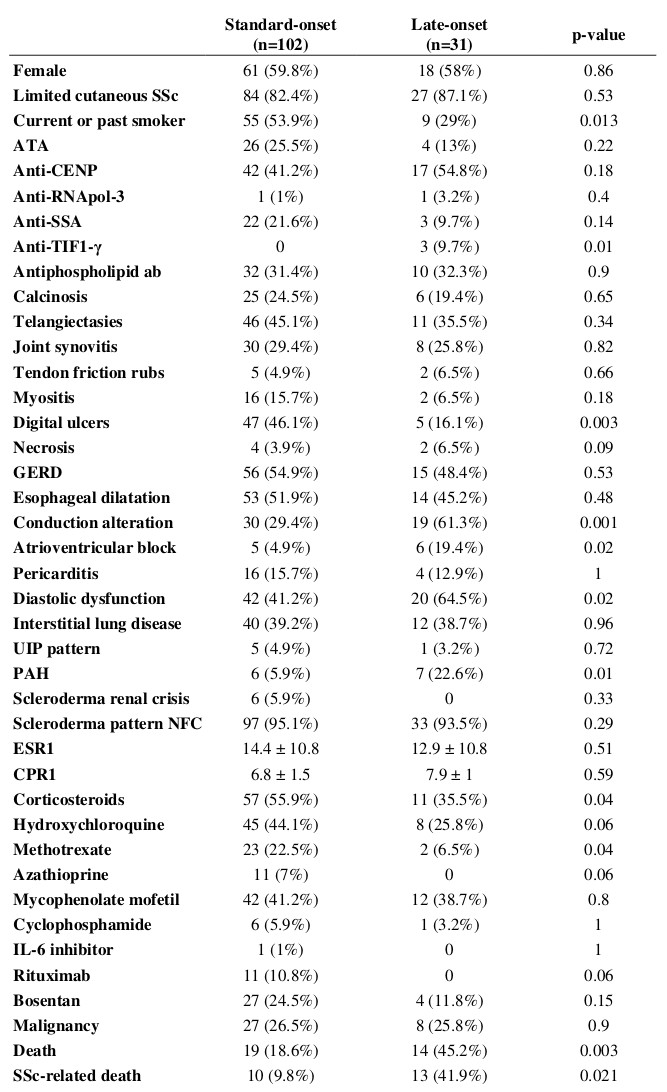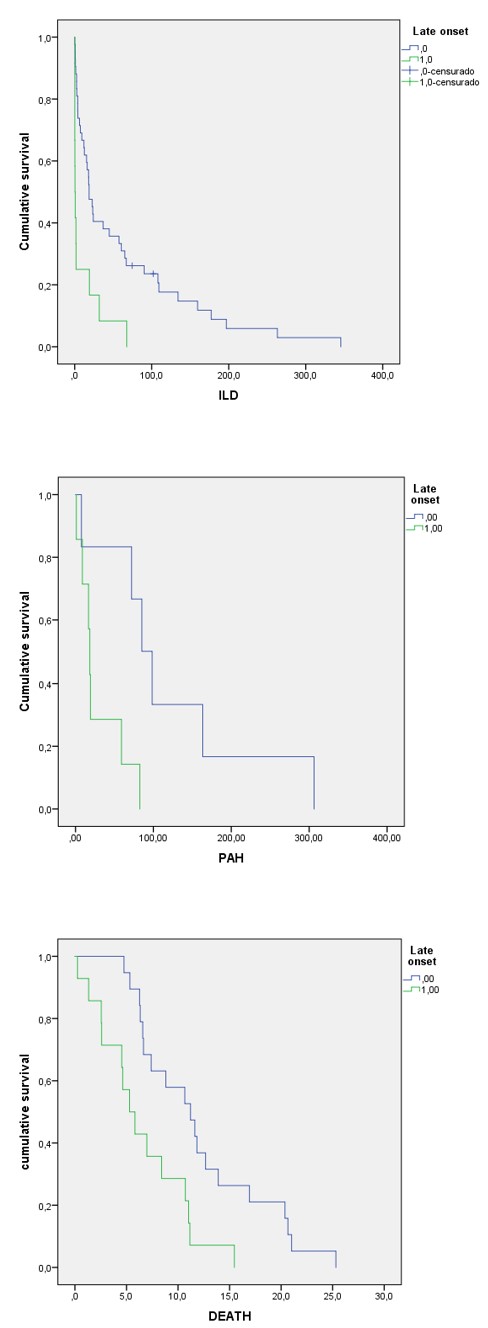Session Information
Session Type: Poster Session C
Session Time: 10:30AM-12:30PM
Background/Purpose: Immunosenescence refers to the gradual deterioration of the immune system associated with aging, leading to an increased incidence of infections, cancer, and autoimmune diseases. Systemic sclerosis (SSc) is an autoimmune condition characterized by fibrosis, vascular dysfunction, and the presence of various autoantibodies. The age at disease onset can influence the clinical features and prognosis in SSc. We aim to evaluate whether the age at SSc onset affects the clinical phenotype and outcomes in our patient cohort.
Methods: This is an observational retrospective single-center study. We included 133 patients diagnosed with SSc according to the modified ACR-EULAR 2013 criteria. Based on the median age at disease onset of our cohort, 59.7 years (range 51-69.3 years), patients aged 70 years and older were classified as the “late-onset group.” We compared clinical manifestations, antibody status, treatment approaches, malignancy incidence, and mortality rates. Continuous variables were compared using the Student’s t-test or Mann-Whitney U test, while categorical variables were compared using the Chi-squared test or Fisher’s exact test. Survival curves were generated using the Kaplan-Meier method, with differences assessed by the log-rank test.
Results: The late-onset group included 31 patients, 58% of whom were female, with a mean age at SSc onset of 76.27 ± 4.5 years. Clinical, immunological, treatment, and outcome data are summarized in Table 1. The late-onset group was more frequently positive for anti-TIF1-γ antibodies and had higher rates of cardiac involvement and pulmonary arterial hypertension (PAH). Digital ulcers were more common in the standard-onset group but showed a more prolonged course in the late-onset group. Immunosuppressive drugs were prescribed more often in the standard-onset group. Malignancy rates were similar in both groups. All-cause and SSc-related mortality were higher in the late-onset group. Time to PAH, interstitial lung disease (ILD), and death differed significantly between the groups (log-rank test, p < 0.001, Figure 1). Time to malignancy was similar between the groups.
Conclusion: Our study suggests that elderly-onset SSc patients present with more severe manifestations at an earlier stage but receive less targeted treatment.
To cite this abstract in AMA style:
Retuerto Guerrero M, Moriano C, sieiro santos c, Gonzalez I, Gonzalez Fernandez I, Díez Morrondo C, Alvarez Castro C, Perez Garcia P, Ordas Martínez J, Baenas Gonzalez P, Diez álvarez e. Elderly Systemic Sclerosis. Clinical Presentation and Outcome [abstract]. Arthritis Rheumatol. 2024; 76 (suppl 9). https://acrabstracts.org/abstract/elderly-systemic-sclerosis-clinical-presentation-and-outcome/. Accessed .« Back to ACR Convergence 2024
ACR Meeting Abstracts - https://acrabstracts.org/abstract/elderly-systemic-sclerosis-clinical-presentation-and-outcome/


